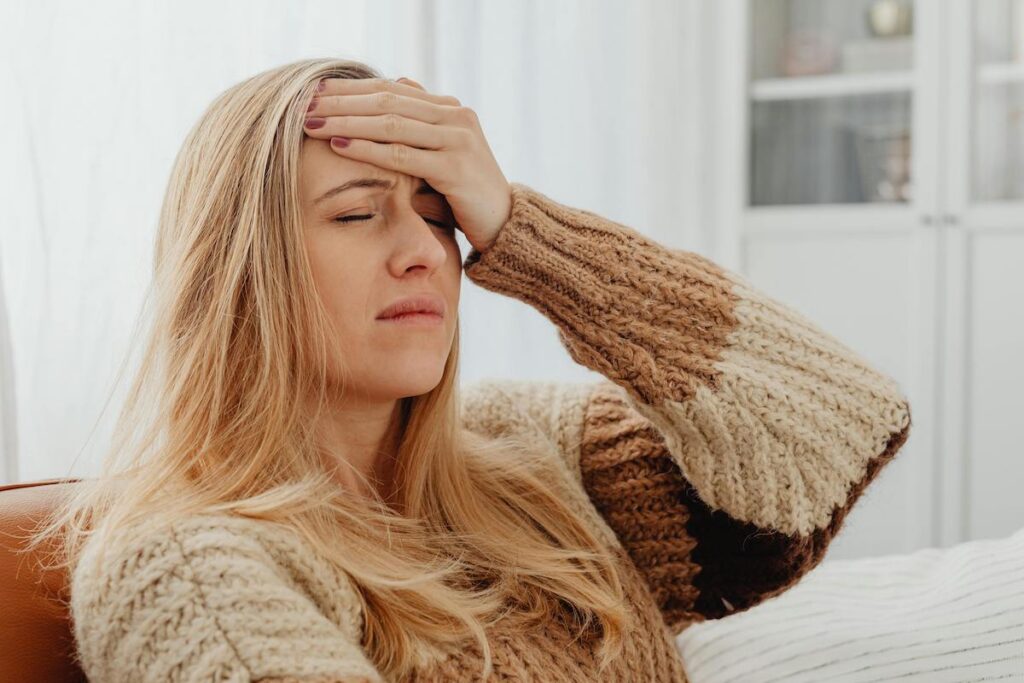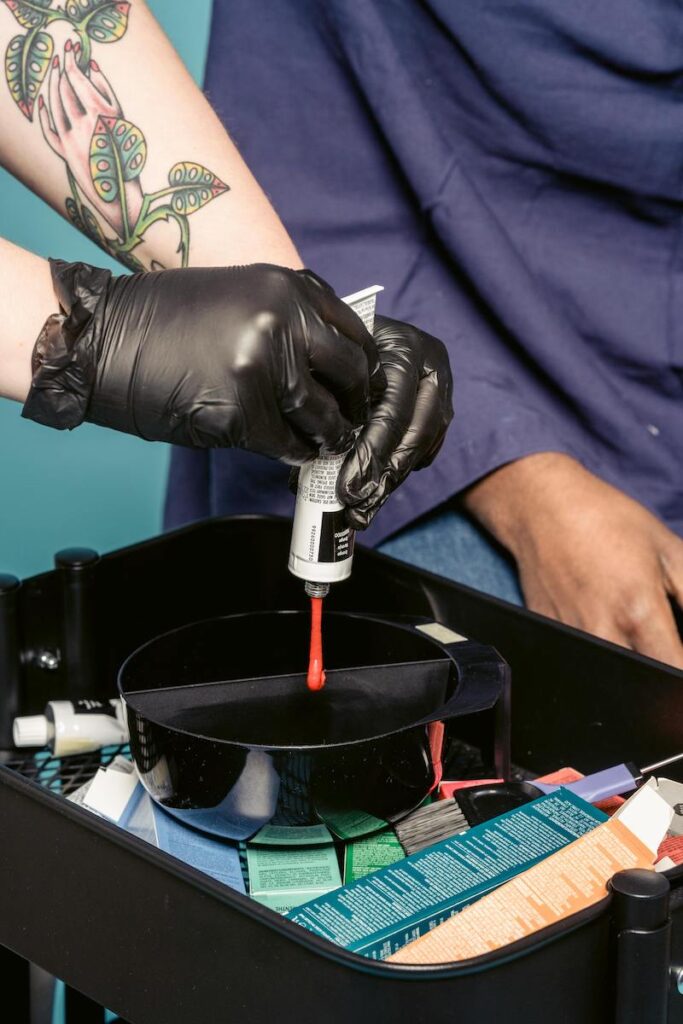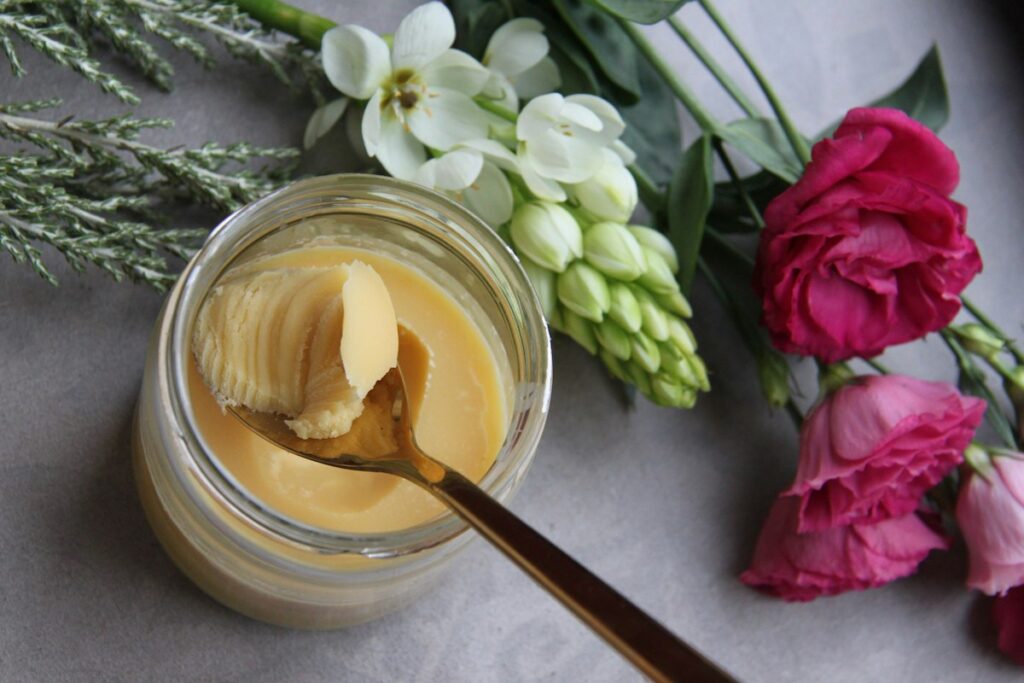Trichodynia: behind this barbaric word lies a reality that many of us, men and especially women, experience and suffer from on a regular basis, to varying degrees of intensity. In simple terms, trichodynia is pain in the scalp at the hairline.
We can talk about pain, discomfort, burning, itching or tingling, prickling, irritation or tightness. The word chosen describes a more or less strong, more or less prolonged state of suffering. This cutaneous sensitivity may be localised and confined to a small area of the scalp, or it may cause a sensation of discomfort that is felt all over the scalp.
Sensitive scalp is a lifelong condition with many causes and a wide variety of symptoms. Contrary to popular belief, there is no link between sensitive skin and a sensitive scalp.
Let's start by defining what a sensitive scalp is, before looking at the main causes and, above all, suggesting ways to quickly regain a healthy, comfortable and balanced scalp.

Irritation, itching? How to stop suffering and regain a healthy, soothed scalp

What is a sensitive scalp?
The scalp is distinguished from the skin on the rest of the body by its extreme vascularity, i.e. the density of the blood vessels that feed the hundreds of thousands of hair follicles located in our scalp. Each hair follicle has a sebaceous gland, capable of producing sebum, which plays an undisputed role in protecting the hair and scalp (the famous hydrolipidic film). The scalp also has a very large number of nerve endings, which also explains its very strong propensity to react in the event of a "shock" (touch, environment).
A balanced scalp is a healthy scalpThe scalp is supple, sufficiently moisturised (but not too much or too little) and naturally protected from aggressions such as bacteria, fungi, heat and pollution, to name but a few. The scalp is supple, free from redness, pimples, dandruff or crusting. Hair grows in a healthy environment, with a balanced pH (between 4.5 and 5.5).
Why can you have a painful scalp?
This balance is fragile and can be affected by a number of factors that exacerbate scalp sensitivity, causing discomfort, pain and itching that can be intolerable:
- biological: heredity, migraines or headaches (resulting from inflammation of the blood vessels), illnesses. A painful, hyper-sensitive scalp can be indicative of serious illnesses such as fibromyalgia.
- chemical: itching is often mentioned as a side-effect of many medicines, but the ingredients in some hair products can be aggressive or even toxic.
- skin infections of bacterial or fungal origin, such as folliculitis, dermatitis or psoriasis, ringworm or shingles.
- lice infestation.

Sensitive scalps: hairstyles that are too tight, chemical colourings and the composition of styling products - be careful!


- mechanical: hairstyles that are too tight, styling appliances or accessories used inappropriately.
- environment: the scalp is our only protection against external elements such as pollution and chemical particles. The balance of lipids and the skin barrier function of the scalp are essential for maintaining its health and resistance to external aggressions. Research shows that changes in lipid composition or skin barrier function can lead to increased sensitivity.
- vitamin or mineral deficiencies. Few people think about it, but deficiencies in iron, vitamin B12 or vitamin D can all be potential causes of scalp pain and have an impact on hair growth and condition. An iron deficiency can lead to reduced blood flow to the scalp, which can cause hair loss and scalp pain, as well as symptoms such as tiredness, weakness and pale skin. Although some studies suggest a link between low levels of B12 and scalp pain in certain hair loss conditions, further research is needed to establish a conclusive relationship.
- nervousness, stress and anxiety are associated with the appearance of scalp pain and itching and, if predisposed, stress is an aggravating factor in hair loss.
- what if it was the microbiome? A study shows a correlation between scalp pain and microbiome balance: "Overall, the sensitive scalp has a disturbed barrier function, an abnormal quantity and composition of sebum, and a disturbed microbiome, which could be the direct cause".
- Hormonal imbalance that disrupts the hydrolipidic film - insufficient and the scalp becomes tight, dehydrated and red. Period of hormonal upheaval, the menopause, female hormones gradually lose their protective power) can upset the balance of the scalp, often making it drier. Conversely, when there is too much sebum, oily dandruff forms and the pores of the scalp are blocked by micro-particles that can prevent hair from growing properly and sebum from draining away normally. This can lead to seborrhoeic dermatitis and other skin infections.
To make matters worse, several causes can combine to accentuate scalp pain, irritation and other skin inflammations. So what can you do to soothe your sensitive scalp and get rid of irritation and itching?
How can scalp irritation be soothed?
The first thing to do is to identify objective sources that are easy to deal with:
- release the pressure on braids and other buns, and set the hairdryer on low or medium to avoid burning and redness of the skull when blow-drying.
- we choose gentle hair care products that are as natural as possible to leave our scalp feeling comfortable, soothed and well moisturised; if necessary, we switch to plant-based hair colouring.
- After a medical analysis, the doctor may diagnose any deficiencies and prescribe a suitable supplement, which you can then supplement with a more carefully chosen diet for the benefit of your scalp and hair.

Gentleness first and foremost to protect your sensitive scalp


- think hat, scarf or cap to protect your scalp from external aggression, including in town and not just in summer.
- It's always easier said than done, so we're doing our best to reduce the stress of compulsive styling (constantly running our hands through our hair contributes to irritation of the scalp and over-greasing of the hair fibre), attacks of dermatitis or psoriasis, and even migraines and other headaches.
In cases of dermatitis or psoriasis, corticoid-based lotions and shampoos are often prescribed to reduce inflammation of the scalp, but beware of their abrasive effect in the long term. At Clauderer, we prefer to offer a natural, highly effective solution: our soothing Lotions (Laits Clauderer) composed of plant extracts with anti-inflammatory and anti-dandruff properties, such as sage, camphor, nettle and thyme. Quick and effective!

Despite a sensitive scalp, you can do everything you can to improve it with a few good practices
In short, scalp pain has many causes, some of which are medical. In most cases, however, soothing scalp pain, calming irritation and burning sensations on the scalp can be easily resolved. A few changes to your routine and choice of hair care products, a healthy lifestyle (don't forget to pamper your microbiome !), gentle moisturising products to restore the balance of the skin barrier and your sensitive scalp will regain its balance and a feeling of priceless comfort.

